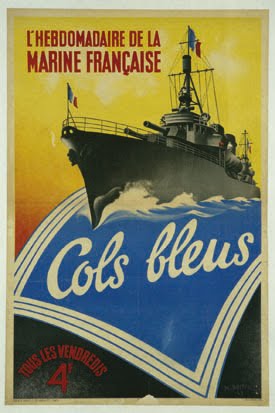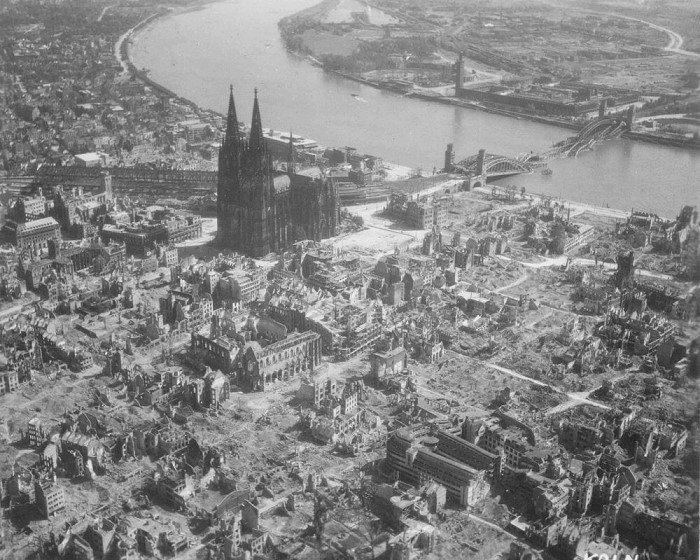Napoleon IV said:
The nations of the world are sheep, while Germany and Britain are wolves, ready to ravish them. In its defense, the sheep must look to the shepherds in Greece, Russia, and France to protect them from these wolves
Winston Churchill said:
As France continued her rearmement, Napoleon himself visited General de Gaulle. de Gaulle was a proponent of a new style of combat he called Foudreguerre, or "Lightning War". As a consultant for many private companies that were building the revamped French Army, de Gaulle had shared his vision, and as a result, the French Army had become the fastest force in Europe, with tanks and motorized infantry divisions spearheading the way.
France's finest forces
With the annexation of Belgium, Franco-British relations were at an all time low. Perhaps even more than the Germans, the British people were pushing for war. The biggest Anti-French politician of them all, Winston Churchill, a former power player sidestepped in the early twenties, came roaring back to victory on the tide of an anti-French sentiment, sealing his victory with these words
Winston Churchill said:
If Napoleon invaded Hell, at the very least I would give the Devil a favorable reference in the House of Commons
It seemed Franco-British relations couldn't get any worse
In late June though, things got even more ugly. With the deployment of soldiers to French colonies bordering British and German ones, Winston announced a State Visit to Germany to discuss "strategic aims and goals for a peaceful world". It was said Churchill would be meeting with the Kaiser himself.
Churchill with the Kaiser at Bremen, reviewing German and British Marines
It was on June 21st that the diplomatic bombshell dropped. Germany and the United Kingdom were no longer merely "friends". The United Kingdom had been invited to the Central Powers, and with the agreement of Parliament and King George VI, Churchill had accepted, in a clear move to contain the ambitions of Napoleon's France.
The march to war now seemed inevitable
Minister Taittinger, the Foreign Secretary, watched in horror as France found herself surrounded by enemies. Spain and Germany had begun even closer relationships than before. In a diplomatic flurry, Taittinger began cultivating two key relationships; Italy and Serbia. Italy was undoubtedly Pro-France; not only were relationships excellent, and to add on to that, Italy had territorial ambitions on British and Danubian land. However, the Italian government was pro-isolation. Her military was unready for a major war, and had inadequate equipment to face the Danubian Army or the British Royal Navy. However, relations were secured to the point that France felt a 60,000 man garrison for the Franco-Italian border was enough.
As for Serbia, they were a key piece to the Balkan puzzle. The current Entente strategy was to pick away at the Germans. The Danubian Federation could be attacked from Greece and Russia, and with internal instability, the Federation would collapse, and without the Federation's army to support them, Bulgaria and Romania, friends of Germany, would be unwilling to go to war against the Entente, allowing a full on push against Germany. Empress Olga made trade agreements with the Serbians, and Taittinger began a diplomatic campaign similar to the one in Greece. Though Serbia was becoming friendly with France, they were unwilling to give up the peace they had with the Danubian Federation, and Alexander, King of Serbia, was still Pro-Hapsburg to the point that he would not end relations with them, much less allow Greek troops to march through his nation. However, it was a start, and it seemed Serbia would at the very least be neutral, if not leaning towards the Entente.
Though bullets were flying, an undeclared war was clearly taking place. French, German, and British papers and radios carried stories about spies being captured and executed daily, and campaigns for influence were being waged by the two blocks. When Taittinger began a visit to the Netherlands, Luxembourg realized that in all likelihood, they were a major next target. French speaking populace and a border with Germany made it an appealing target for French embitions. Unwilling to suffer the fate of Belgium, Luxembourg instead chose to preserve their independence, even if it meant giving up their sovereignty. On August 3rd, Luxembourg joined the Central Powers.
The Battle lines are being drawn
As Britain became an open member of the Central Powers, and Germany seemed ready to go to War with France at any moment, it was deemed necesarry to begin deploying troops to Africa and Indochina. 70,000 French troops in Africa (not counting troops in Algeria) outnumbered any major force the British or Germans could bring to show, though a major concern would be South Africa if it became involved in the war. 50,000 troops in Indochina would mean that, though there would be few offensives in the region, the colony would be safe.
Defense of the Colonies
On September 1st, a day which New York Times European correspondent Robert Mitchell declared "an ominous agreement to the end of peace in our time", the Franco-German Non-Aggression Pact had expired. German and French diplomats did not even meet, showing clearly neither party desired peace between one another. In France's mind, 1870 was to be avenged. In Germany, a desire to ensure a new Pax-Germanica would reign over the world was at stake. And peace would not be the answer
No interest in Peace in our time
The populace was in a fever pitch in all nations. Issues dividing Austrians, Croats, and Hungarians died down and they flocked to recruiting stations. Lenin's declaration from Switzerland of a Red revolution had long been forgotten, with the Russian people ready to fight and die for their Empress and their nation. Leon Blum's speech was a distant memory, as Frenchmen flocked to recruiting stations. Train stations throughout Europe were filled with troops headed to border towns, the reserves being mobilized in France, Russia, the Danubian Federation, and Britain. To a nation on the edge of her seat, Napoleon declared
Napoleon IV said:
Luxembourg always has been, and always will be, French. It is time to repair that mistake
The World waits for war
It was a clear provocation. Napoleon knew that Germany would not allow France to conquer Luxembourg. With Germany refusing to back down, the time for war was now.
The War that never was had begun
































































